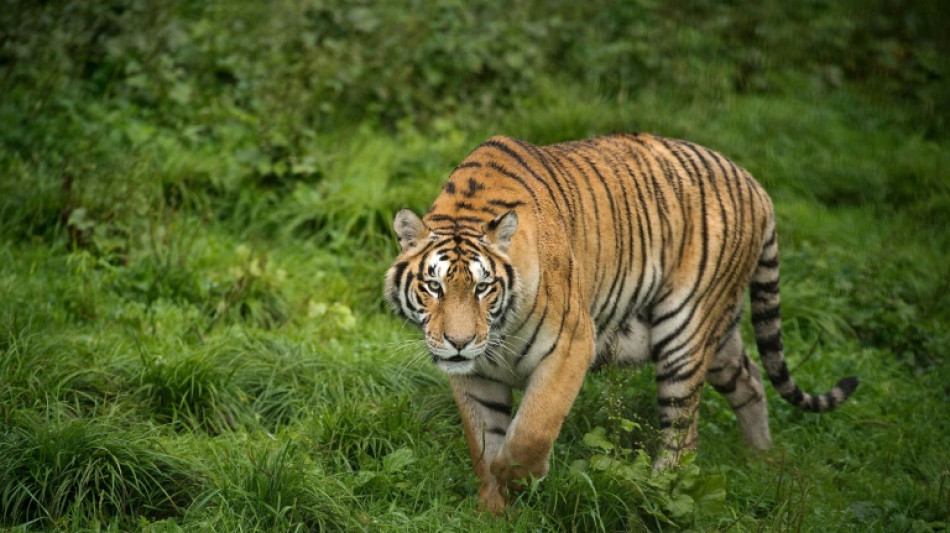

Tiger breeding, exports flourish in S.Africa: charity
South Africa's legal lion breeding has spawned a tiger farming industry for commercial exports, potentially posing a threat to the species already in decline, an animal welfare group warned Tuesday.
Breeding lions for commercial hunting and for bone exports towards Asia is legal in South Africa, but in recent years tiger breeding for similar purposes has become more common.
A report by global animal rights charity, Four Paws, showed that 359 tigers -- almost a tenth of the global tiger population -- were exported from South Africa from 2011-2020.
Around 255 of them were sold to zoos.
Tigers are not native to South Africa and enjoy no legal protection in the country, the organisation said.
There were "loopholes that were allowing the business model to change," Paws's wildlife expert Kieran Harkin told AFP.
"The market being in Asia was already there, demand was there, so it made perfect sense for the (breeders) to move over to the tiger, which was again even more lucrative than lions," he said.
South Africa has no official count of its tiger population.
Four Paws is asking South Africa to halt the commercial breeding of all big cats, whose populations are declining partly due to trade to Asian countries.
"We are asking South Africa to stop supporting that trade... and be a defender of the wildlife, and not perpetuating the trade in species on the decline," Harkin said in an online interview from London.
He accused South Africa of flouting international laws that dictate that tigers should not be bred for trade in their parts.
South Africa's government promised to give a comment later on Tuesday.
As the largest exporter of big cat parts, South Africa is being urged to "reverse that role and take on a leading position in protecting wildlife... iconic species," Harkin sad.
Fiona Miles, director of Four Paws in South Africa, called for national legislation and international agreements to be "re-examined since they are clearly not working".
She warned in a statement that unless the threatened species were protected, "we put all big cat species at risk of one day, only existing behind bars."
A.Maggiacomo--LDdC



